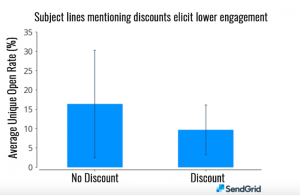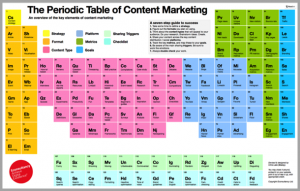Blood, sweat, tears – ask the founder of any startup, and she’ll tell you those are the building blocks which went into her company. She has toiled for months, even years to make this happen, often in some cramped space hidden away in the bowels of someone else’s building. Dig a little deeper, and you begin to learn more about how the company started and what made its creator so passionate – passionate enough to do the creating. If you’re a consumer or an investor, however, you shouldn’t have to dig for this origin story. It should be front-and-center in the startup’s marketing campaign.
Why Share Your Origin Story
Your origin story is what sets you apart from your competition. Investors and consumers alike have choice no matter the niche, and as a startup, you are in a position to cultivate your own reputation. If your origin story has to do with social responsibility, like Warby Parker’s, this lends to your credibility within your market. It never hurts to share your good karma.

Did you meet in college?
Did you meet in college and have been best friends for decades? Did you use your own guerilla marketing tactics to get off the ground? The story of Sara Blakely, her white pants, and her footless pantyhose has made the origin story rounds for years — for good reason. Did you see a need in another industry and fill it with your own product? Nearly everyone in the world knows Lamborghini’s badge, but do you know its origin story? Ferruccio Lamborghini started the company after becoming frustrated with the performance of his Ferrari — yes, his Ferrari.
Having Trouble?
Sometimes it’s difficult identifying what makes you unique. Ask yourself some questions about what made you start your company:
- How did my business partner and I meet?
- What drove me (us) to start the business?
- Do I (we) have characteristics which truly set us apart from others?
For Menlo Park teens Matt and Max, it was the desire to take their coding to the next level, which was sharing it with their friends. Thus, Menlo App Academy was born. Their age and the age of their target market sets them apart from others: Matt and Max were barely teens when they founded the academy, and they teach students from 10 to 16 how to develop iOS apps.
Sometimes it’s as simple as where your startup began: did you start boxing your sports drink in your mom’s garage? Were you crunching code in the basement of your best friend’s house?
Capitalizing on these particular characteristics is half the battle.
What Not To Do
Don’t be disingenuous. You might be tempted to flesh out your story with a little hyperbole. If you’re telling a Reader’s Digest-style anecdote to your friends, that’s all well and good.
Embellishing the truth is not a wise business practice — just ask NBC’s Brian Williams.
In your published goods like a website or your marketing materials? Not so much. It can turn around and bite you. Even if you’re not a startup, embellishing the truth is not a wise business practice — just ask NBC’s Brian Williams.
If you are a startup, it can doom you before you even get started.
How To Get Out The Word
Start with your website’s landing page. Your landing page definitely needs an attention-grabbing headline, dynamic visuals, and a call to action for your customers. Your landing page should also blatantly tell your story.
Use your “About Us” page to spread that story, and make sure consumers and investors can get to it.
Honda is one of the biggest companies in the world, and its origin story is practically mythical, but the corporation’s landing page still leads consumers easily to its “About Honda” page. Here you can read the details of Honda’s post-WWII origins.
Numi Tea has mastered the art of marketing the origin story. Created by a pair of globe-trotting siblings, the organic tea company deliberately shouts out its Founders’ Story under its Vision page.
San Francisco-based kombucha brewer House Kombucha uses its landing page to highlight its origin story — it’s the very first link.
Don’t forget to blog about your origin story. A company blog is a great way to spread the word about your origin story. Tweet links to a series of short posts, sharing your story in installments in order to build your consumers’ desire to hear your story.
In The End
Just remember that your origin story is what separates you from the crowd — it deserves to be shared with the public.

Set your story apart.
In the world of digital marketing, you have multiple platforms at your disposal with which to share your origin story. Use your credibility, authenticity, and creativity — and use it wisely.
(196)










